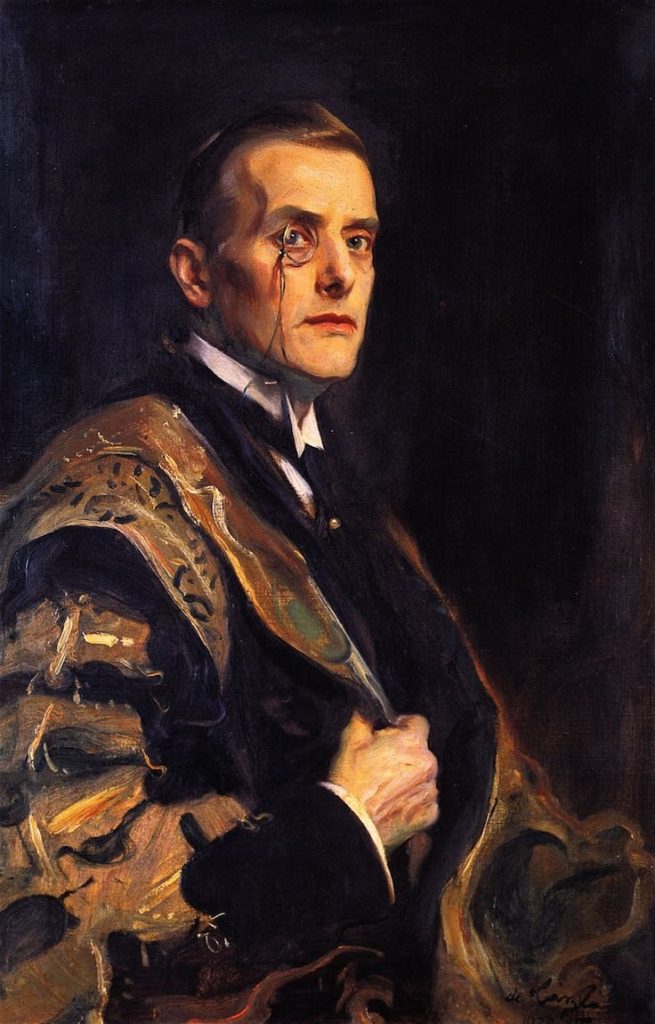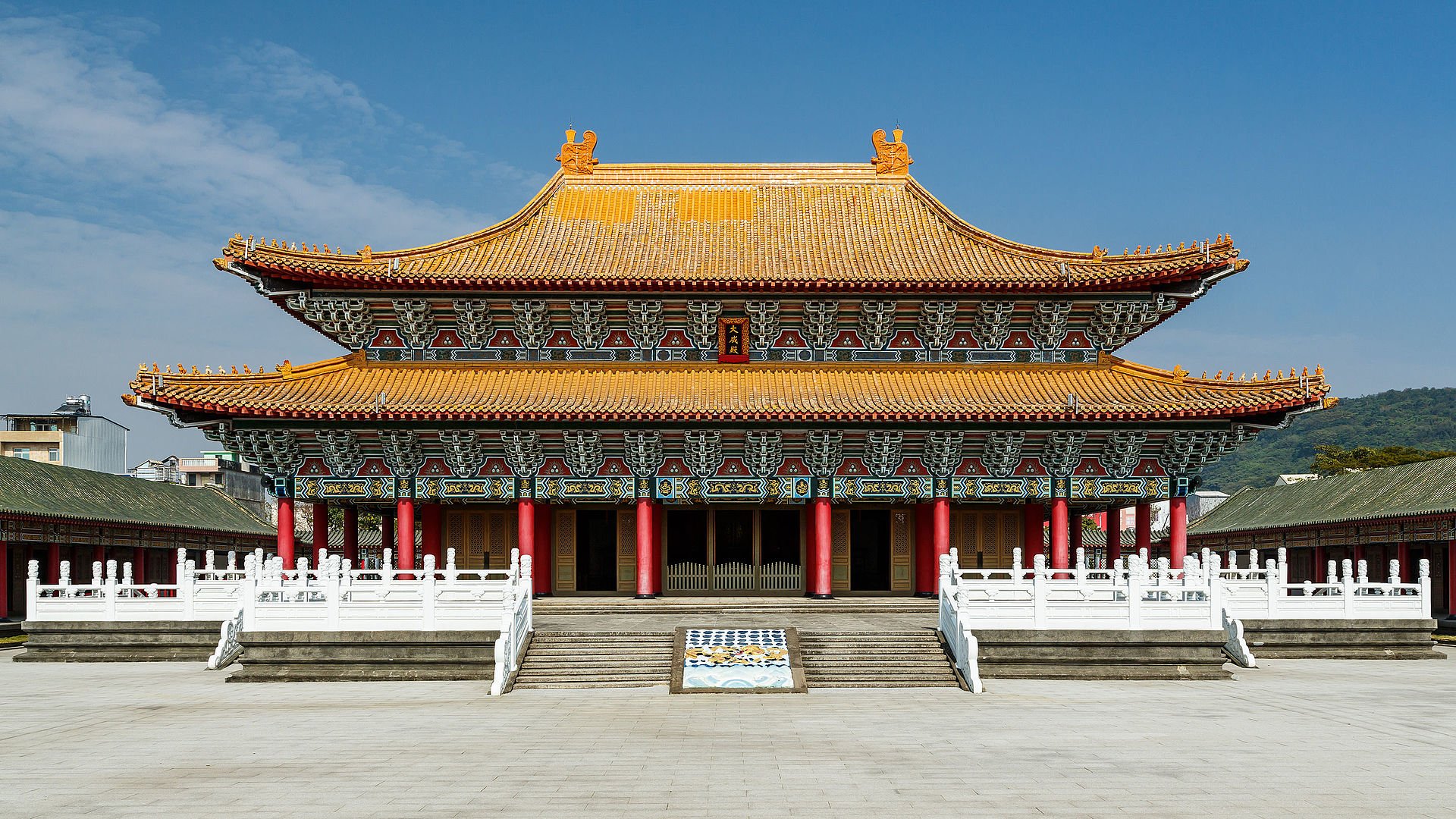During discussions about stability in society, one can often hear as an argument a Chinese proverb about the difficulties of living in a changing world. We checked whether such an eastern saying exists.
The expression “God forbid you live in an era of change” (the wording “God forbid you live in an era of change” is also found) has been used for several decades in discussions about the pros and cons of stability. Almost always this idiom is identified as a Chinese saying or Chinese proverb, and not only in online discussions, but also in media publications - for example, in a historical magazine "Amateur". Yegor Gaidar in the book “A Long Time” calls this phrase “Chinese wisdom”, and the author of the article in Vedomosti attributes saying of Confucius.
The earliest uses of this “Chinese saying” that we could find date back to 1998. One of them occurs in article “Civilization choice and scenarios of world development” by RAS academician Vyacheslav Stepin in the formulation “God forbid you live in an era of change.” The now established option “God forbid you live in an era of change” mentions Nikolai Chapaev in the textbook “Introduction to the course “Philosophy and History of Education”,” which was published in Yekaterinburg. In both cases, the authors do not provide a source where the expression would be called a Chinese proverb. Moreover, in the largest Chinese encyclopedia Baidu This expression could not be found. It is extremely suspicious that there is no such phrase in "Chinese-Russian phraseological dictionary", containing about 3,500 popular Chinese expressions. It is also unlikely that the author of the saying was Confucius - in the works of a specialist in his heritage, sinologist Ivan Semenenko, it not mentioned, although the meaning of “change” in the philosophy of the Eastern sage was given a lot of thought.
An expression very similar to “God forbid you live in an era of change” There is in English. It sounds like “May you live in interesting times” and literally translates to “May you live in interesting times.” For quite a long time it was believed that this sarcastic idiom was borrowed from the Chinese. In the English-speaking world, the expression became especially popular after the brother of US President Robert Kennedy mentioned it in a speech. While performing in Cape Town in 1966, he said: “There is a Chinese curse that says: “May you live in interesting times!” Whatever one may say, we live in interesting times.”
The origin of the proverb in English has been studied much better than in Russian. Translator and teacher at Vassar College in the USA Brian van Norden in his book “Introduction to Classical Chinese Philosophy” assertsthat the existence of such an idiom in Chinese is a myth. With him agree and Yale University lecturer and editor of The Yale Book of Quotations Fred Shapiro. The Chinese interviewed by researchers on forums also disowned from this “curse”, and Nancy McPhee in the “Book of Insults” published in 1978 attributed the authorship of the idiom is not the Chinese, but the Scots.
The expression “May you live in interesting times” was first used in connection with the Chinese in 1936. British newspaper The Yorkshire Post quoted speech by Sir Austin Chamberlain, who said: “Not long ago in London, a diplomat who had worked in China for several years told me that there is a Chinese curse that goes like this: “May you live in interesting times.” There is no doubt that a curse has fallen upon us." By the way, I talk about “interesting times” more than once in my speeches. spoke Austin Chamberlain's father, prominent statesman Joseph Chamberlain. True, he did not connect this expression with the Chinese in any way.

It is not known for certain who the diplomat was who told Austin Chamberlain about the “Chinese curse.” Hugh Knatchbull-Hugessen, who served as British Ambassador to China in 1936–1937, in his memoirs remembers: “Before leaving England for China, a friend told me about the Chinese curse “May you live in interesting times.” If this is true, then our generation has certainly witnessed this curse come true.” US Congressman Frederick Coudert told: in that very year 1936, he corresponded with Austin Chamberlain, and when they met, he commented on his remark that “we live in interesting times” with a story about a diplomat, which was written about in the same year in The Yorkshire Post.
Be that as it may, the phrase, which appeared in Great Britain in the mid-1930s, was confidently gaining popularity precisely as the “Chinese curse.” Quite quickly, writers began to get hooked. For example, in 1951, the French poet Pierre Emmanuel, in his article for The Atlantic Monthly wrote: “An old Chinese curse goes something like “May your children live in the historical era!”.” A few years later, Albert Camus, in a speech at Uppsala University, mentioned “an Eastern sage who asked in his prayers that God would be kind enough to spare him from living in an interesting era.” In 1965, the "curse" was mentioned in an essay by Arthur C. Clarke: "As the old Chinese curse goes, 'May you live in interesting times,' and the 20th century is probably the most interesting period mankind has ever known." However, it didn’t end with writers and poets - in addition to the already mentioned Robert Kennedy, the phrase was used by former Secretary of State and ex-First Lady of the United States Hillary Clinton. In her 2003 autobiography, she writes: "There is an old Chinese curse, 'May you live in interesting times,' which has become a running joke in our family."
Let us repeat that to date there is no evidence that the proverb “God forbid you live in an era of change” exists (or at least is widespread) in China. At the same time, analogues that are close in meaning are actually used in Chinese. For example, no later than the middle of the 17th century, the expression “It is better to be a dog in an era of calm than a man in an era of chaos” appeared. On a forum about the Chinese language, a resident of Shanghai reported, that another similar expression is popular: “A changing world gives birth to heroes.” But these idioms have not become widespread in the Russian-speaking environment. Apparently, the phrase “God forbid you live in an era of change” still came to us through English-language journalism and fiction, and the wording “took with it” its supposedly Chinese origin.
We thank the senior lecturer at the Department of Oriental and African Studies at the Higher School of Economics in St. Petersburg Ekaterina Starikova for assistance in preparing the material.
Fake
- https://quoteinvestigator.com/2015/12/18/
- Chinese-Russian phraseological dictionary
- I. Semenenko. Aphorisms of Confucius
- https://web.archive.org/web/20040404010918/http:/hawk.fab2.albany.edu/sidebar/sidebar.htm
If you find a spelling or grammatical error, please let us know by highlighting the error text and clicking Ctrl+Enter.







